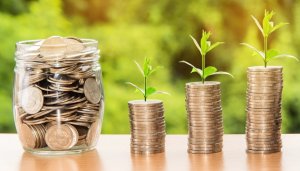Sylvester Kizito is one of those rare Ugandans who are very hard working. He has been through the furnace of life and seen it all. After completing senior six in one of the schools in rural Fort Portal, he was fortunate enough to get admitted to University on an evening program. Being self-sponsored, life has been very challenging.
Around 2006, during his final year at campus, he applied and got accepted for internship at one of the banks as a teller. This was a turning point for him. Aware of his background, he started saving 40% of his monthly salary. This accumulated to about Ugx. 5,000,000 within a period of just two years. By this time, the bank had promoted him to the position of manager in charge of the strong room or bulk cash manager. Early 2010, Sylvester qualified for a soft loan under the banks staff loan scheme. He applied, and successfully obtained a bank loan of Ugx. 6,000,000. At the time of applying for the bank loan, Sylvester had two choices – buy a car or a plot of land.
After what he had gone through, he needed to own a ride. But also, he did not want to own a car only to park it in someone else’s parking yard/ compound. He was faced with making a choice. Just like you, biggest obstacle most people face is that they don’t understand opportunity cost and the impact it has on personal finance. In order to take advantage of an opportunity, something else must always be given up. Opportunity cost is basically what you lose by choosing one opportunity and giving up the next best choice. If Sylvester choses to buy a plot of land, he will be giving up the next best choice, that is a plot of land.
Each choice has benefits and drawbacks. If he chooses the car, he will likely have a good time, avoid taxi inconveniences, and get a chance to relax. If he opts to save the money by buying a plot of land, he give up that good time and travel convenience, but get the chance to earn interest in form of land appreciation, giving him more money in the future. Either way Sylvester stands to gain something and lose something. Every time you make a choice, you’re weighing the opportunity cost of that action. Failure to consider the concept of opportunity cost is one of the reasons for the suffering of most people later in their lives during retirement. If you buy a car using hard earned personal savings, you will enjoy a good ride in the short term. However, this decision might strain your cash flows going forward considering that a car is more of a liability than an asset – you have to keep spending a lot of money in fuel, monthly servicing, car washing and many more. Land, on the other hand, is an investment that does not require any monthly maintenance yet it keeps appreciating in value.
Opportunity cost is even more important when you face big career decisions. Go to university or go straight into the workforce? The university option will be expensive, but will surely yield higher earnings over time. The other choice lets you start earning money immediately, but you may come to a point where your earnings cannot increase without that degree. Your opportunity cost here is the loss of potentially higher earnings if you go to college versus the four years of additional income you will make if you don’t go to college. In any situation, the choice you make depends on how much you value the opportunity that you choose versus the one you must give up.
The decisions you make today have big impact on your life in future. Endeavor to evaluate the cost of each decision you make. To some people, enjoying today is more important than enjoying tomorrow. The bottom line is, it is painful to enjoy today but suffer later. Each thing should be done systematically. It takes careful future planning. This is why, if you do not have a steady source of income, it is not advisable to commit your hard earned savings or loan in buying a car. The best decision would be to save it in form of an asset that (i) brings in revenue or (ii) protects your savings from loss of value. Most cars will not do any of the above.
It sounds like a drag to think about opportunity cost every time you want to buy a candy bar or some shoes. But that’s exactly what you have to do in order to make the best use of your money. You cannot go through your financial life on autopilot, assuming that the choices you make today don’t have costs in the future.
You have to understand that when you purchase one thing, you are giving up other choices that might have been better. While you can’t know everything that will happen in the future, you can have a good general idea of the impact your choices will have. The good news is that once you practice being conscious of the opportunity costs for a while, it becomes easier and more subconscious. You don’t have to actively think about the tradeoffs of your choices as much. You will eventually be able to make decisions that take those costs into account. And that’s when your financial life will start to take off.
First appeared in SBR August 2011.
Copyright Mustapha B Mugisa, 2014. All rights reserved.



